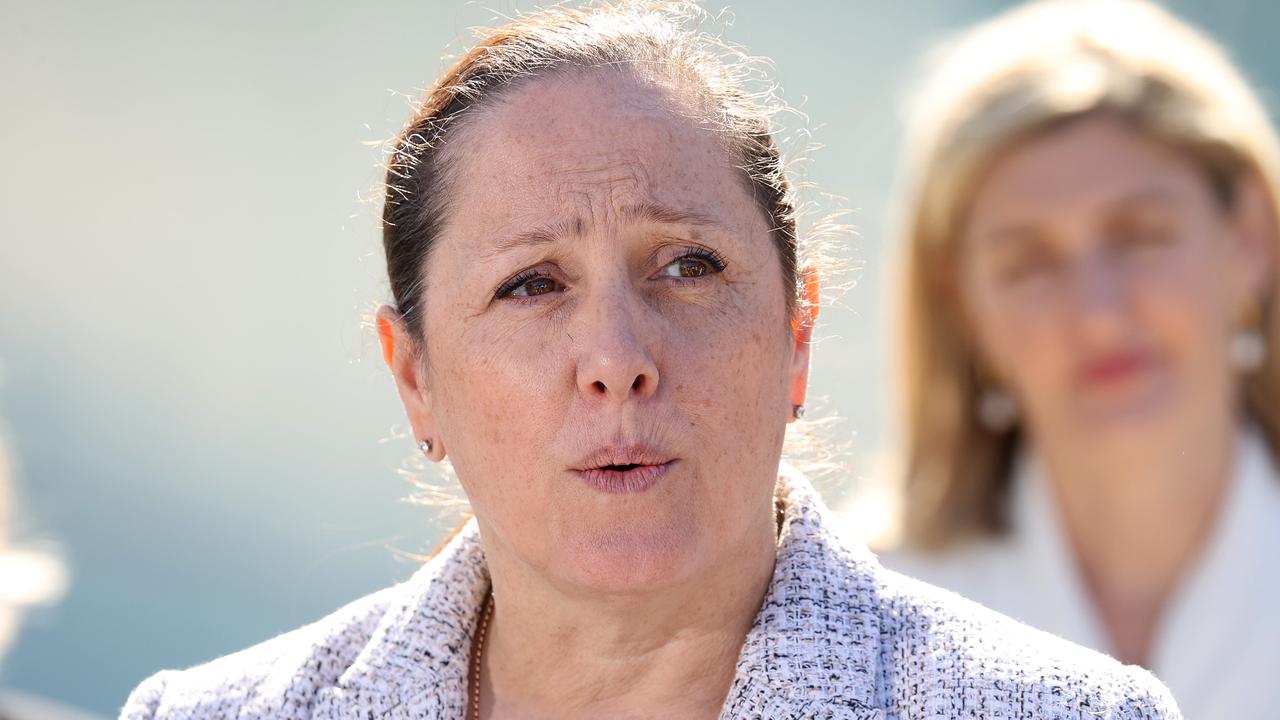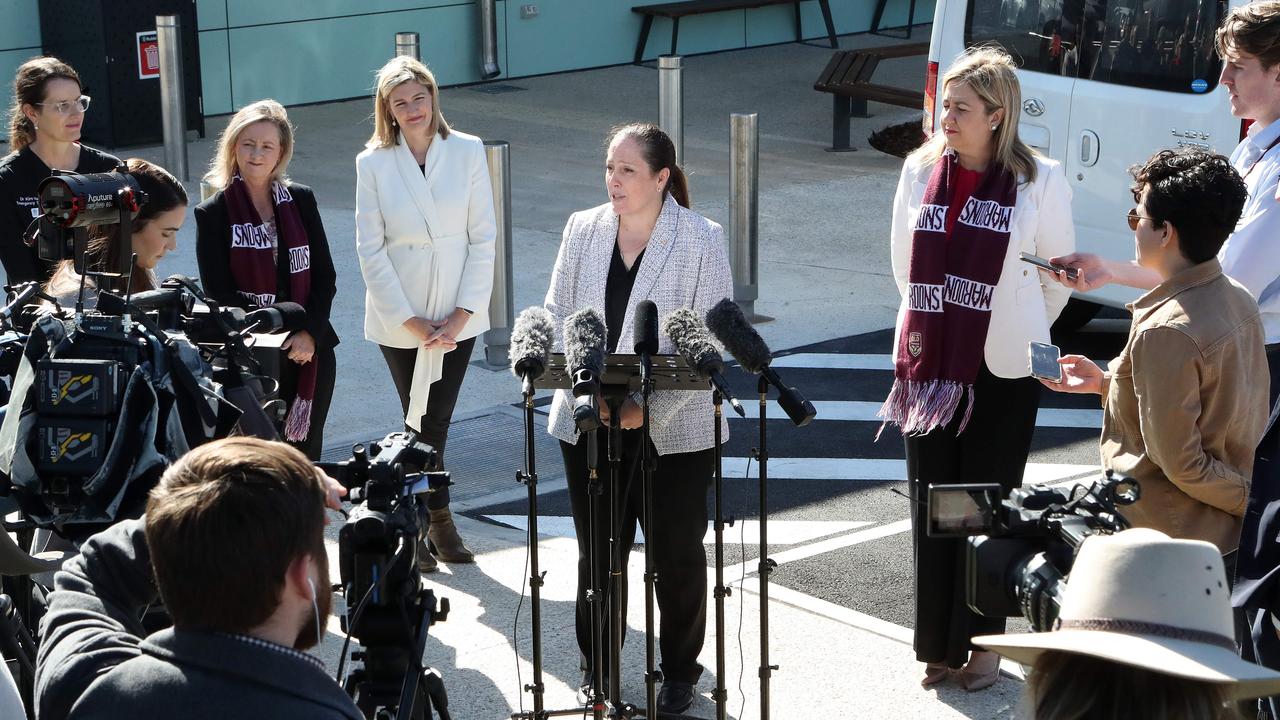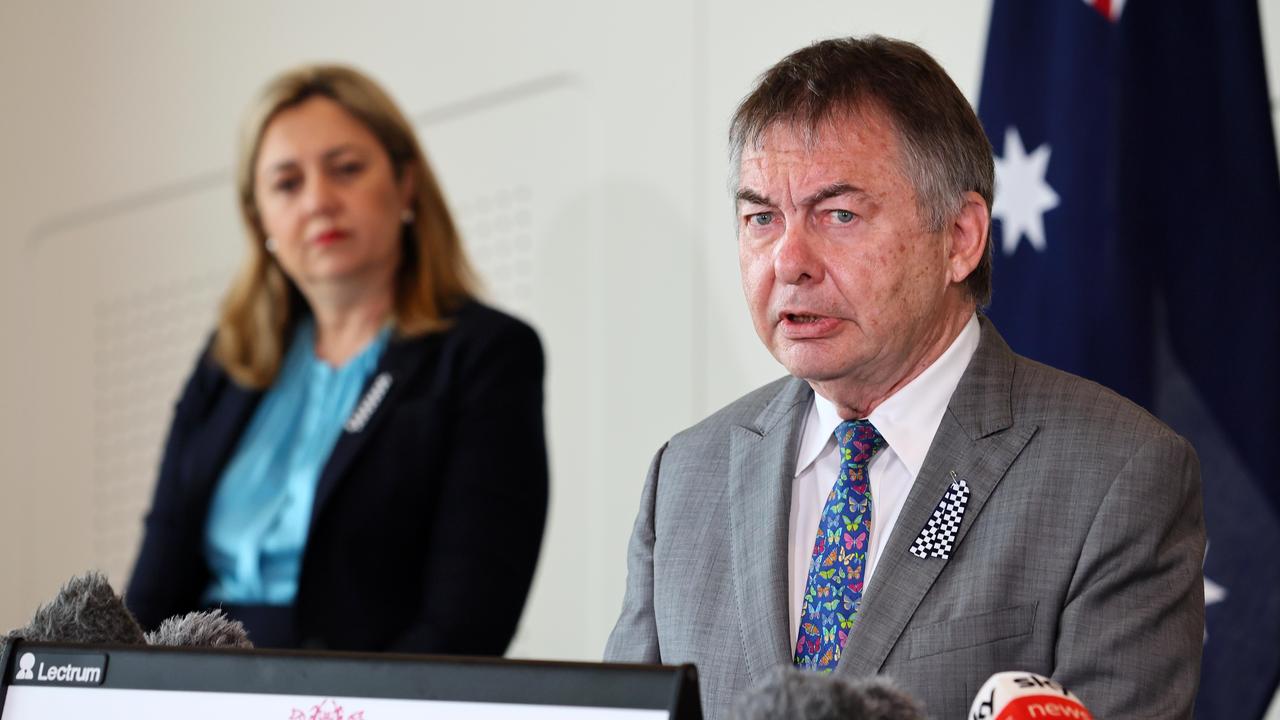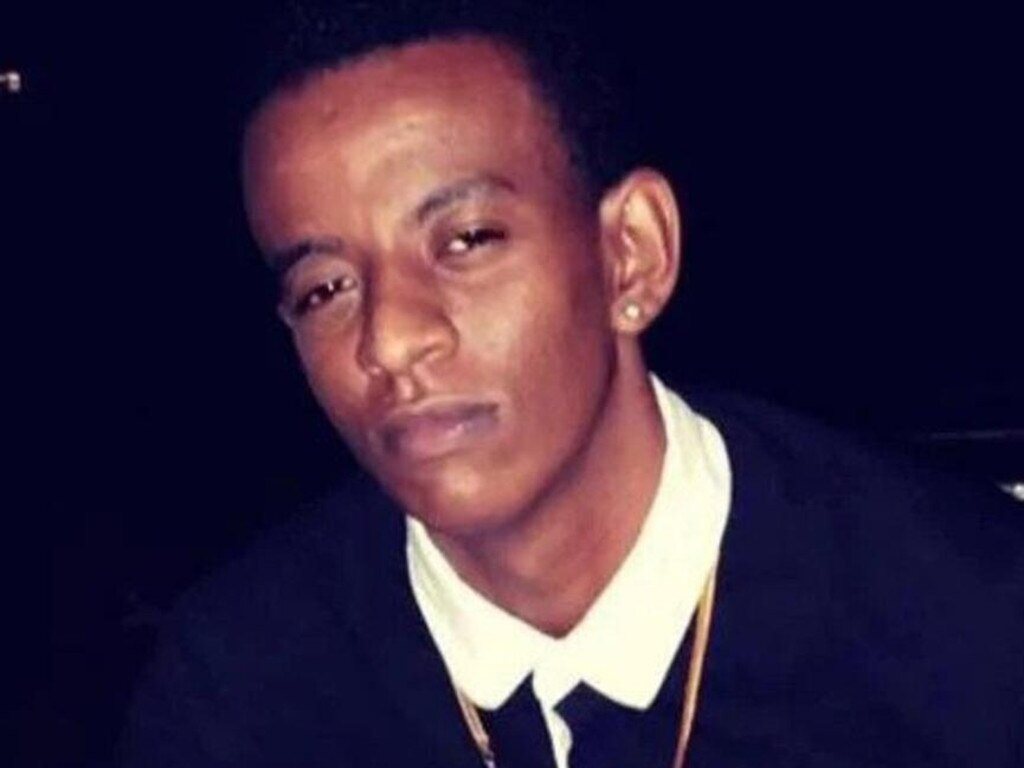‘Stain on justice system’: DNA retesting figure revealed
Forensic Science Queensland’s new CEO has faced media for the first time, revealing what is needed to sort the mess left by catastrophic failures of the state’s DNA facility.
QLD News
Don't miss out on the headlines from QLD News. Followed categories will be added to My News.
It will take “two to three years” to sift through evidence piles in the aftermath of catastrophic failures at the state’s DNA facility, as long as more than 40 niche roles are filled, the lab’s new boss has said.
Forensic Science Queensland chief executive Dr Linzi Wilson-Wilde’s first press appearance since taking on the role came after top legal experts’ flagged fears it could take 12 years to sort out a review under current staffing levels.
As the state government moved to assert it had put “enormous resources” to clean up the mess, Premier Annastacia Palaszczuk stated updates on clearing up the DNA crisis to be made publicly available every quarter.

About 30,000 cases have been embroiled in Queensland’s DNA bungle amid fears it could take up to 12 years for forensic scientists to sift through the enormous pile of evidence.
The disturbing figure can be revealed by The Courier-Mail months after the Commission of Inquiry handed down its scathing findings into the management of the state-run lab.
Dr Wilson-Wilde said she did not anticipate the lab would be “inundated with 30,000 cases by any stretch of the imagination”.
While there were no “quick fixes”, she was also confident clearing the backlog of samples would take “two to three years”.
But this is based on Forensic Science Queensland recruiting 41 extra staff — most of them scientists — on top of replacing the five people who left the lab in the aftermath of the inquiry.
And she conceded it was “exceedingly challenging” to find forensic scientists and it wouldn’t be possible to fill all the roles with ready-to-go experts, so the lab would instead train up qualified scientists over a few months.
Dr Wilson-Wilde confirmed five scientists had left the lab as a result of the inquiry, which includes the managing trio stood down as a result of the damning findings.
She said one of those roles has been filled, with two offers made and interviews occurring for two other spots.
“I’m confident we will (fill the more than 40 vacancies) … we are getting significant interest,” Dr Wilson-Wilde said.

Health Minister Shannon Fentiman said the government was doing “everything we can” to make sure there were no “miscarriages of justice”, with serious matters going through court prioritised for testing.
International assistance, including from New Zealand and the United Kingdom, have been called upon by Queensland to help sort out the DNA lab mess with the Australian Federal Police already assisting with a small number of bone samples.
Dr Wilson-Wilde said the deal with the UK had yet to be finalised, but it was hoped they could provide six to nine scientists for one segment of the DNA analysis process which could be done electronically for a temporary period.
Ms Palaszczuk acknowledged there was “significant public interest” in the process to fix the DNA lab, and gave her commitment to provide a progress update every quarter.
It comes after top legal figures said the delays risked eroding the public’s trust in the system and feared justice for major crimes such as murder and rape could be compromised.
A closed-door meeting last week featuring a range of top forensic and legal experts flagged the enormity of the samples under review could take up to 12 years to be completed under current staffing levels.
Queensland Health said the alarming timeline was speculation only but The Courier-Mail understands it was not disputed by forensic experts at the private forum, including Dr Wilson-Wilde.
Following the inquiry, Commissioner Walter Sofronoff recommended major crimes as far back as 2018 with “insufficient DNA” samples be reviewed to determine if the samples require further testing.

It is understood FSQ is prioritising the retesting of samples connected to major crimes such as murder and rape cases currently before the courts.
But a number of cases have already faced delays as a result of the forensic bungle, including the murder of a Zillmere teen and a violent dispute between warring factions at Brisbane’s Sikh Temple.
Queensland Health said a global specialist shortage had compounded issues at the lab and created “enormous challenges” as it sets out to recruit an additional 41 scientists.
“There is no quick fix,” a department spokesman said. “Achieving a service that is more efficient, more reliable and sustainable will take time.
“We are exploring available options to assist in clearing the backlog in the interpretation of DNA profiles and are engaging a number of external service providers to assist, including UK agencies.”
The department is also working with police and the courts to “investigate other options to streamline DNA analysis processes”.

It is understood the categories of cases identified by the inquiry includes samples from about 30,000 cases.
Each case could include multiple samples but some will not require a DNA review, such as those from closed court matters based on non-DNA evidence.
This is in addition to the backlog of about 16,000 samples related to “volume crime” such as vehicle break-ins and assaults.
High profile criminal lawyer Bill Potts was not at the closed door meeting but said the 12 year delay was “not only along the lines of what I’ve been hearing, it’s what I’ve been warning about”.
“It’s not just a matter of cleaning up an enormous problem but they actually also have to maintain, at the highest possible standard, the current workload,” Mr Potts said.
“(Until the retesting is completed) there will be this stain on the public justice system and doubt in the public’s mind as to the accuracy of their evidence.”
Queensland Law Society vice president Rebecca Fogerty also didn’t attend the private forum and refused to comment specifically about the time frames discussed but said the “feedback we’ve had is that it is going to result in significant delays”.
“Those delays can have a compounding effect for the whole community,” she said.
“Some degree of delay is unavoidable, but there is the saying ‘justice delayed is justice denied’, and that applies not just to a person charged with an offence but victims, witnesses and all the community stakeholders.”
More Coverage
Originally published as ‘Stain on justice system’: DNA retesting figure revealed








